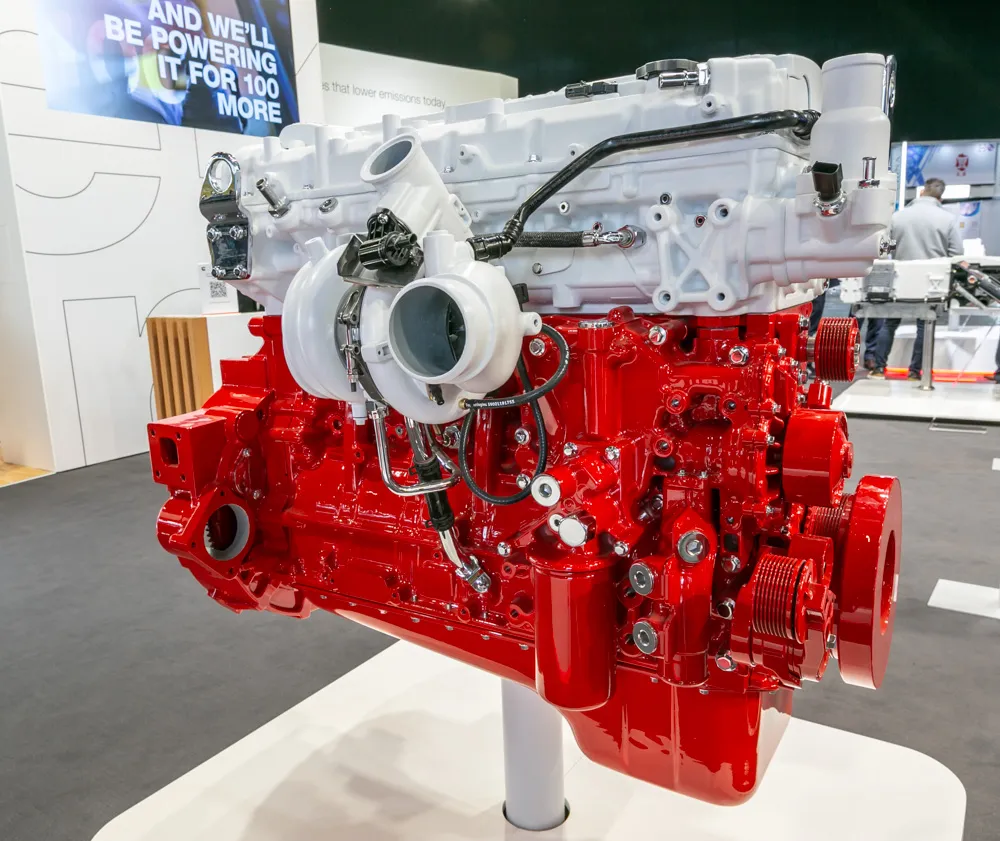More than 35 million electric vehicles (EV) will be on the world’s roads by 2022, according to a new report from Navigant Research.
“With gasoline prices remaining high, acquiring an EV is becoming an economic decision for many consumers,” says Scott Shepard, research analyst with Navigant Research. “The initial purchase price premiums for EVs, compared to conventional gasoline and diesel-powered internal combustion engines, are substantial. Yet, operational cost savings due to reduced refuelling and maint
January 8, 2014
Read time: 2 mins
More than 35 million electric vehicles (EV) will be on the world’s roads by 2022, according to a new report from Navigant Research.
“With gasoline prices remaining high, acquiring an EV is becoming an economic decision for many consumers,” says Scott Shepard, research analyst with Navigant Research. “The initial purchase price premiums for EVs, compared to conventional gasoline and diesel-powered internal combustion engines, are substantial. Yet, operational cost savings due to reduced refuelling and maintenance costs are proving that, when considered over the life of the vehicle, EVs are cost-competitive with internal combustion engine vehicles.”
Navigant Research estimates in 2013 there were over 7.3 million EVs on roads – the vast majority being hybrids.
The research firm says that innovations in EV technologies are reducing the cost of EV ownership. These include vehicle-to-grid (V2G) systems that allow plug-in EV (PEV) owners to utilise battery power not only for driving, but also for emergency backup power and grid balancing. Test fleets are being used to examine the revenue potential of V2G services, and electricity providers are looking into ways to shift PEV charging to off-peak hours through demand response programmes. Developments in both areas promise to strengthen the business case of PEV technologies for fleet and individual owners, the Navigant Research report concludes.
The report, Electric Vehicle Market Forecasts, provides forecasts, market sizing, and market share analysis for the overall light-duty (LD) vehicle market and LD hybrid EVs, plug-in hybrid EVs, and battery EVs. It includes comprehensive data for vehicle sales and vehicles in use (parc) for the global LD vehicle market, as well as the three EV segments. Also provided are the underlying forecast assumptions for the consumer and fleet markets.
Leading EV manufacturers including Volkswagen and General Motors are strong in the Chinese market – which, given its size and Government subsidies to local firms to develop EV’s, and its further subsidies to customers to buy them, is predicted by many sector analysts to become the world’s leading EV market. A basic, all-electric version of, for instance, the hybrid Chevy Volt/Vauxhall Ampere could be reasonably cheap for many EV manufacturers to develop.
“With gasoline prices remaining high, acquiring an EV is becoming an economic decision for many consumers,” says Scott Shepard, research analyst with Navigant Research. “The initial purchase price premiums for EVs, compared to conventional gasoline and diesel-powered internal combustion engines, are substantial. Yet, operational cost savings due to reduced refuelling and maintenance costs are proving that, when considered over the life of the vehicle, EVs are cost-competitive with internal combustion engine vehicles.”
Navigant Research estimates in 2013 there were over 7.3 million EVs on roads – the vast majority being hybrids.
The research firm says that innovations in EV technologies are reducing the cost of EV ownership. These include vehicle-to-grid (V2G) systems that allow plug-in EV (PEV) owners to utilise battery power not only for driving, but also for emergency backup power and grid balancing. Test fleets are being used to examine the revenue potential of V2G services, and electricity providers are looking into ways to shift PEV charging to off-peak hours through demand response programmes. Developments in both areas promise to strengthen the business case of PEV technologies for fleet and individual owners, the Navigant Research report concludes.
The report, Electric Vehicle Market Forecasts, provides forecasts, market sizing, and market share analysis for the overall light-duty (LD) vehicle market and LD hybrid EVs, plug-in hybrid EVs, and battery EVs. It includes comprehensive data for vehicle sales and vehicles in use (parc) for the global LD vehicle market, as well as the three EV segments. Also provided are the underlying forecast assumptions for the consumer and fleet markets.
Leading EV manufacturers including Volkswagen and General Motors are strong in the Chinese market – which, given its size and Government subsidies to local firms to develop EV’s, and its further subsidies to customers to buy them, is predicted by many sector analysts to become the world’s leading EV market. A basic, all-electric version of, for instance, the hybrid Chevy Volt/Vauxhall Ampere could be reasonably cheap for many EV manufacturers to develop.







